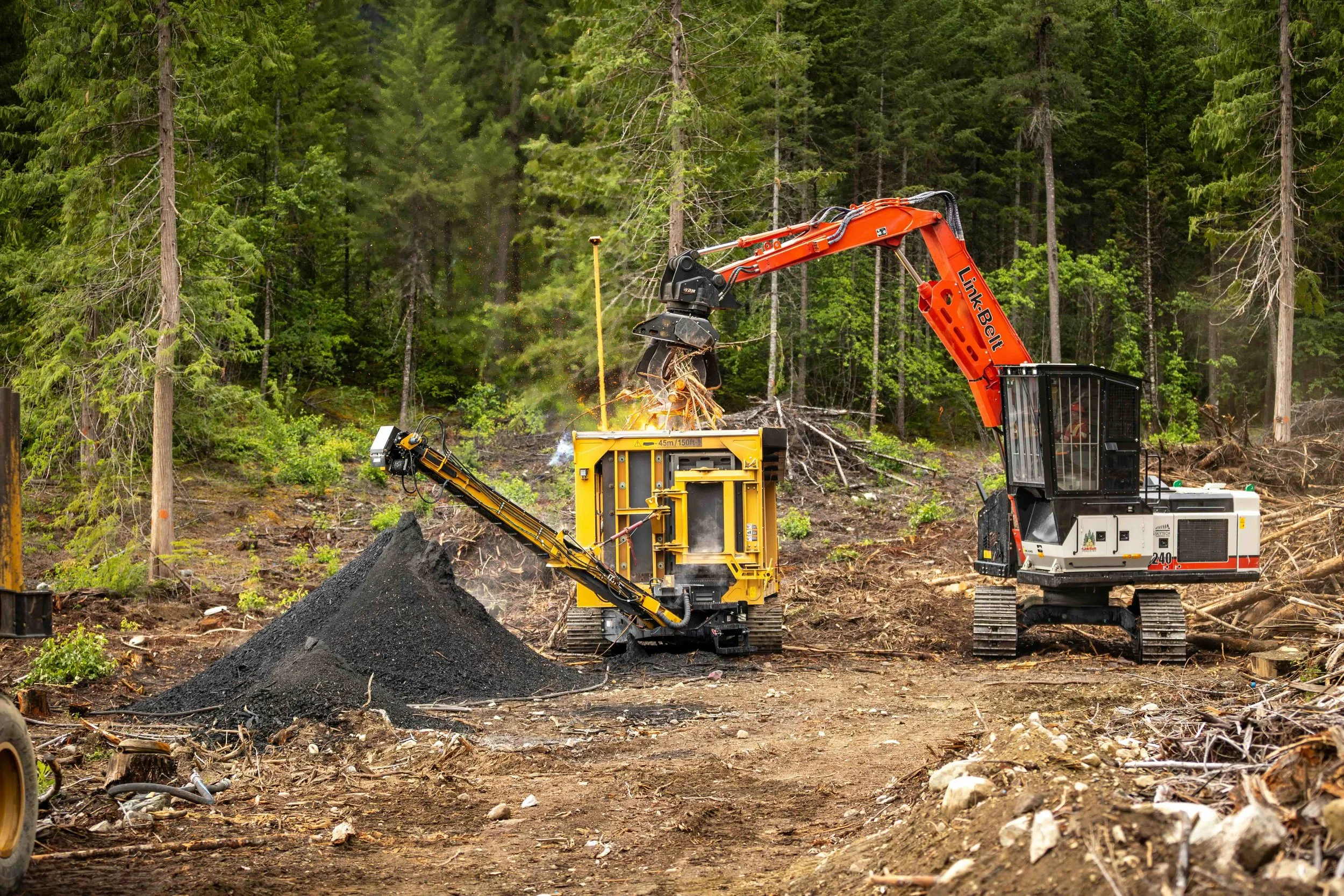Don’t waste the waste!
Forest Managers in BC have long been seeking solutions to make use of non-merchantable material - often called post-harvest ‘waste’. In collaboration with Skytech Yarding, Spel’kúmtn is proud to be subsidizing the use of the Carbonizer for management of these materials in an area of our tenure adjacent to community.
Key benefits:
very little smoke; significantly lower particulate and C02 emissions
carbon sequestration and production of a valuable end product
timely management of debris piles
The Carbonizer is a wood debris conversion unit that thoroughly combusts materials and creates a valuable end-product: biochar. Using high heat and an air vortex to combust materials the Carbonizer has dramatically lower emissions and reduced fire hazard compared to pile burning. The Carbonzier can be used during periods when conventional burning would not be permitted, as it emits few sparks or embers, allowing for longer windows of opportunity for managing post-harvest material. Use of the carbonizer is regulated through Ministry of Forests, BC Wildfire Service, and Ministry of Environment policies and permitting systems that ensure safe and effective operations.
The Carbonizer reduces smoke emissions by up to 95% as compared to pile burning. With wildfire smoke being an increasing reality through many months of the year, minimizing additional emissions of particulate matter is a significant health benefit and an important consideration in operational planning.
The carbonizing process also sequesters 30% of the carbon into the biochar end product, an excellent soil amendment which absorbs, then slowly releases, moisture and nutrients.
The SCF tenure lies in close proximity to communities - VoP, SLRD and Mount Currie - and wildfire mitigation is front of mind. Our foresters integrate wildfire mitigtion as one of the key values in harvest planning, meaning for example that site selection and layouts for potential harvest are done with objectives like fuel reduction, but also shade and moisture retention.
Nonetheless, even wildfire conscious harvests do leave non-merchantable woody debris behind and that has been a challenge to address. While the overall volume of fuels has been dramatically reduced, the piles do remain as a potential fire hazard. With lengthening fire seasons and shortened seasons to burn these piles - as has been the primary practice for disposal - removing piles from the landscape has been an increasing challenge.
Currently, the cost of using the carbonizer is often cost prohibitive as compared to conventional pile burning. Nonetheless, Spel’kúmtn and Skytech are looking for solutions to use the carbonizer as a tool in all post-harvest material management through developing markets for the sale of biochar, research partnerships and funding.

